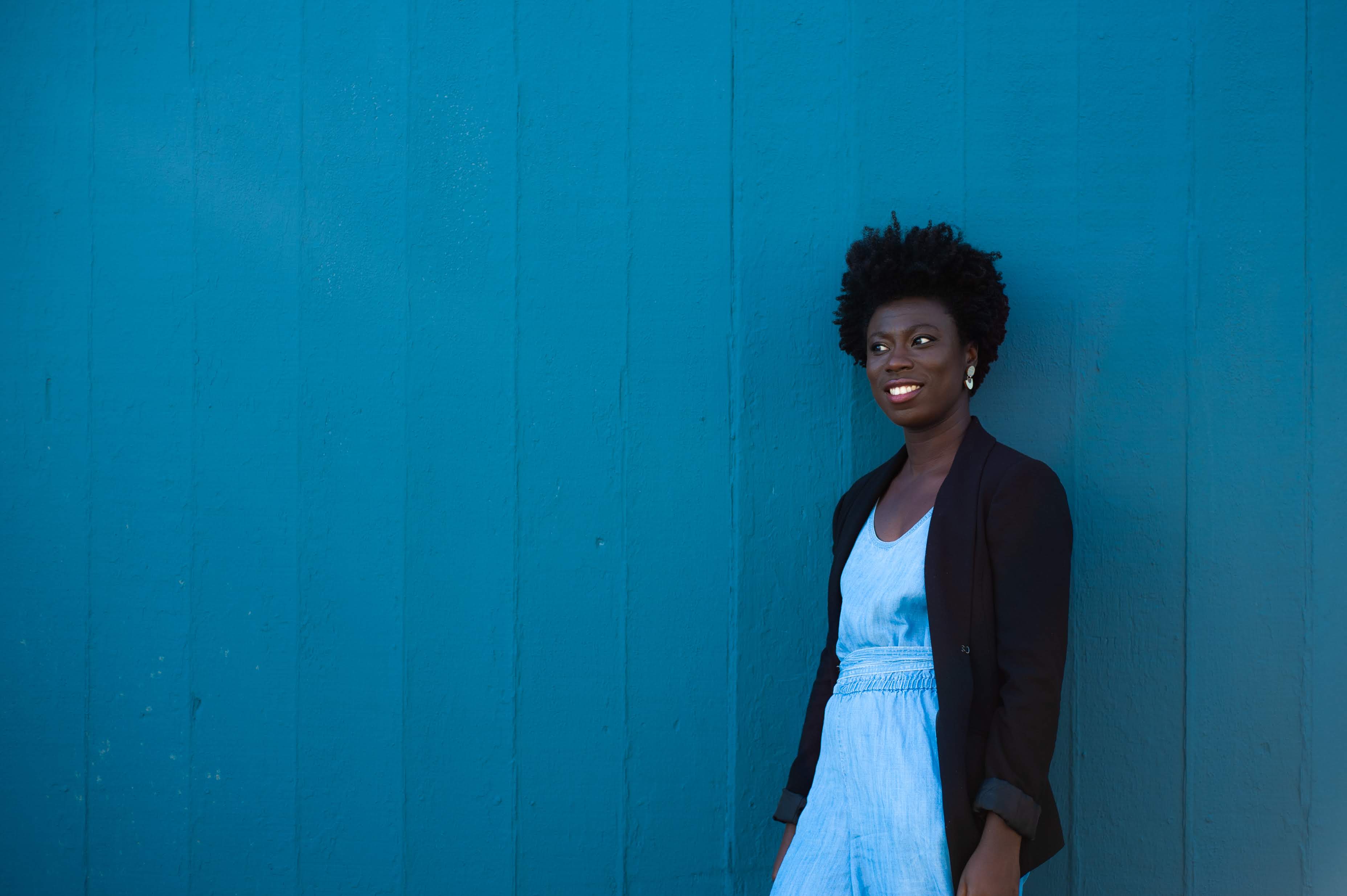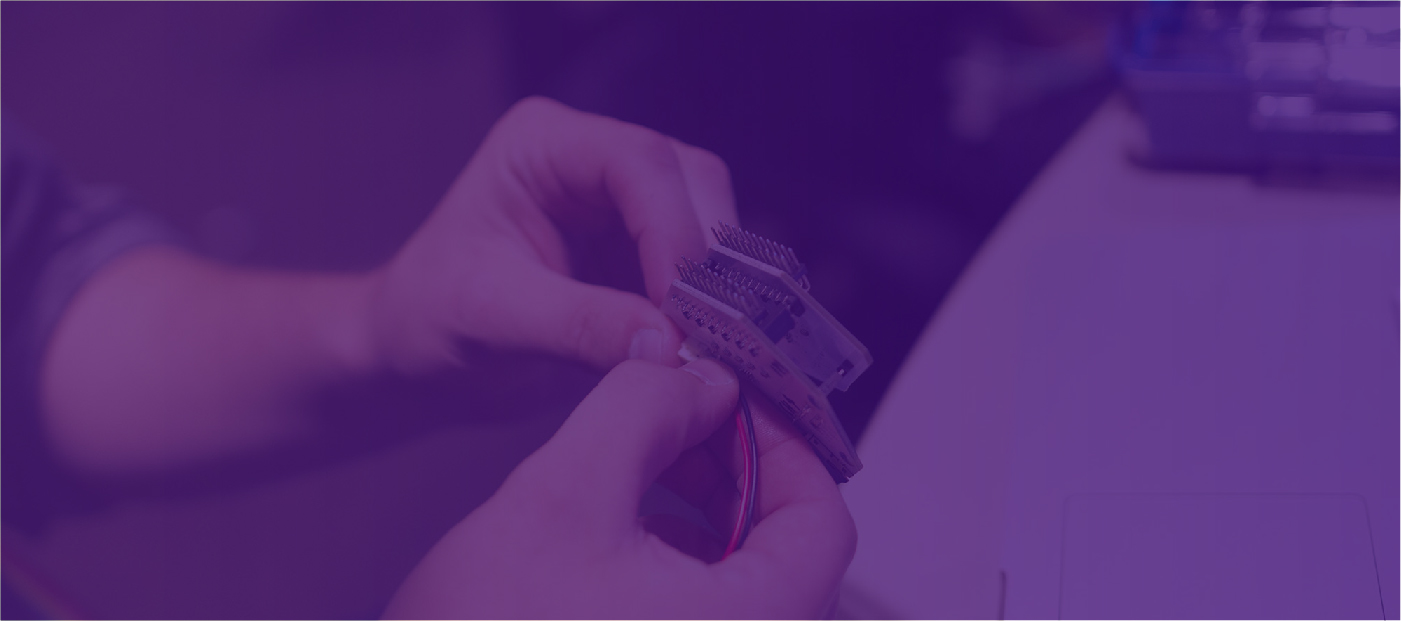
Dr. Nikki Yeboah. Photo by Kim Yee.
A Q&A with the School of Drama's new Assistant Professor of Playwriting.
Dr. Nikki Yeboah will join the UW School of Drama this fall as our new Assistant Professor of Playwriting. As the first full-time faculty member hired in the playwriting area since the retirement of Executive Director and playwriting professor Betty Comtois in 1993, Yeboah will be instrumental in designing and implementing the school’s playwriting pedagogy.
Yeboah’s work brings together oral history methods and performance to create alternative records of Black life. Her research and creative work explore documentary theatre methods, African drama, Black storytelling practices, theatre for social change, Black feminist performance aesthetics, and the ethics and politics of conducting creative research in marginalized communities.
We sat down with Dr. Yeboah to learn more about her artistic and scholarly work, and what she is looking forward to most as she makes her transition to UW. Enjoy!
You identify as both an artist and a scholar. Can you talk about that a little bit?
My identities as an artist and a scholar kind of grew alongside each other. My first desire was just to be an artist, but because of the limitations I faced as a young artist in Toronto, a Black artist in a predominantly white kind of structure—it’s not a white city by any means, it’s a very diverse city—but I was trying to be a writer for television and film, and at the time all of my professors were white and most of my classmates were white. I still talk to a few of the people that I went to school with and, of all the POCs, only one of them is left in the industry. And she talks about this a lot—not realizing what's happening until you look around you and you realize that, yeah you may have started with ten peers, but now you're the only one. And what does that say about the industry?
So those were the kinds of tensions I was facing, and I needed language for that, 'cause I couldn't understand what was going on. You feel like it's just you. You can't articulate what is making you uncomfortable about the situation, you can't articulate the kinds of walls that you're hitting. You're just like, “Why is no one interested in these stories? I find them interesting.” Theory and scholarship really helped me articulate that. Gaining a voice through that strengthened my voice as an artist. It's given me confidence, it’s allowed me to speak from a place that I now understand holds value, even if it's not a normative value, it holds value and I can articulate what that value is. And it’s actually made me a much better artist as a result. I became much more confident in my creative voice once I was introduced to scholarship and academia and the discourses that support my voice.
What are you working on right now?
I'm working on a new project that is kind of documentary theater. It emerges from interviews and conversations I've had with African Americans and Africans on identity, what it means to be Black, and also the cross-cultural conflicts that happen between us. Not all Black people have the same experiences of Blackness, and so there's a lot of tension, actually, between African and African American communities that, because of a Pan-Africanist desire, we try to gloss over. But I do think it needs to be faced if the Pan-African community that we're trying to form is to be achieved, because we also face very similar oppressions.
So this play is based on these conversations that I had over the course of about a year—it was a series of dialogues facilitated by the Afrourban Society in Oakland. I set it in a world where because of global warming—it's called The Referendum—because of global warming, the United States is facing a referendum to decide whether immigrants can stay or if they have to leave because there's not enough resources left for everyone. It’s about a Black American family who are the tenants of an African family, and if the African family leaves they get the house. So the stakes are high for them. So it's all about them negotiating, what does solidarity mean? What does Blackness mean? What does Pan-Africanism mean? Can we support each other? Are we too different? That’s what I think through in the play.
A lot of the dialogue comes from the actual dialogues that we had in the series, and I’m modeling these characters off of real people. In the staged reading of it, I had those real people play themselves. I wanted to make sure I was capturing their voices, so I had them read it, and I saw how they were auto-correcting and then I made notes of that. Now that I have this job I can fully dive into this project and I'm so looking forward to that.
What is exciting to you about coming to Seattle and UW? Any aspects of that that you're really looking forward to exploring?
I mean, this is a dream job in many ways. It's a dream job in that I feel like I'm coming full circle. I’ve always wanted to be creative. I always wanted to be a writer my whole life. And then it felt like at a moment in time there was this real crisis, that I talked about earlier, as to whether or not my stories were— if they mattered. This job is proof that it matters, and that's a really beautiful feeling. Also to be moving to a city that I have friends in. Usually in academia you move, and you're starting from scratch. Here I have a soft place to land when I arrive and that feels amazing amazing amazing. So it's like the dream job in a dream city. It doesn't really get much better. I'm just super excited.
We're literally setting the cultural tone that we're in, this cultural moment that we're in.
Dr. Nikki Yeboah
